Fish - Interview
by John Clarkson
published: 6 / 9 / 2010
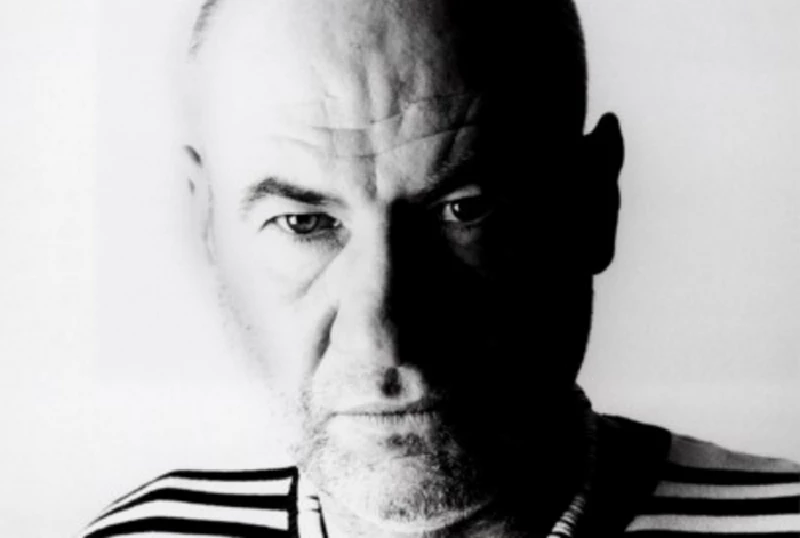
intro
Ex-Marillion front man Fish speaks about his recent return to live work with an acoustic tour after an enforced absence of nearly a year because of throat difficulties and his forthcoming studio album, ‘Feast of Consequences’
The last three years have been years of immense personal and professional difficulty for the singer and musician, Fish. The former front man with the progressive rock act Marillion, Fish recorded four albums with them in the 1980s, ‘Script for a Jester’s Tear (1983), ‘Fugazi’ (1984) and the bestselling ‘Misplaced Childhood’ (1985) and ‘Clutching at Tears’ (1987). He, however, left the Buckinghamshire-based group in 1988 to begin a solo career and to return to his native Scotland, where he bought a former farmhouse on the outskirts of Haddington, twenty miles east of Edinburgh, and in which he built his own recording studio. Fish has now recorded nine solo albums including ‘Vigil in a Wilderness of Mirrors’ (1989), ‘Internal Exile’ (1991), ‘Raingods with Zippos’ (1999) and his most recent album ‘13th Star’ (2007). During the last three years Fish, whose real name is Derek Dick, has had collapse two important relationships. The first of these was a much publicised liaison with Heather Findlay, the then singer with folk rock group Mostly Autumn. They had become engaged, but Findlay left him weeks before their wedding was scheduled and just as he began the recording sessions for ‘13th Star’. The two had broken up before and ‘13th Star’ had originally been planned in part as a celebration of their renewed decision to stay together. With many of its lyrics hastily rewritten in the studio, it, however, became a much darker, break-up record and one of the most both critically and fan-lauded albums of Fish’s career. The title of the album referred to it both being the thirteenth studio album in Fish’s career and also to Findlay being the thirteenth significant female in Fish’s life. It became instead a metaphor for a then as yet unknown future relationship. That next relationship, however, was no happier. Fish met Katie Webb, a London-based occupational therapist, through mutual friends in 2008 and they were married last April in Croatia in what Fish has described as “the most romantic moment I’ve had in my whole life.” The marriage, however, lasted barely eight months. His new wife found it hard living in the isolation of the Haddington farmhouse after London and during what was a particularly bleak Scottish winter. She went off to visit relatives back home shortly after Christmas and, in what makes particularly poignant and heartbreaking reading on the blog Fish regularly writes for his website, failed simply to come back. While this has all been going on, Fish has also had to undergo two throat operations. At one point it seemed like he might lose his whole musical career. He recently returned to live work after an enforced absence of a year and is currently performing acoustic dates in a trio which he has called the Fishheads Club with his long-term guitarist Frank Usher and keyboardist Foss Paterson. Pennyblackmusic finds Fish marred by his recent experiences, but excited by the opportunities the acoustic dates are providing and also looking forward with excitement to a return to his off-on acting career and the writing and recording of his next album, ‘Feast of Consequences’, which will come out next year. PB: You have had two operations on your throat. What were they for? F: It was granulated cell growth. What happened was that I had the first operation in December 2008. During the ‘13th Star’ tour I had been having throat problems. As a singer you’re very sensitive to what is happening with your throat and I was losing range. Some days everything was working and then the next day it wasn’t. At first the doctors thought it was a thyroid problem. They did a range of blood tests when I was on the tour and they all came back negative. Then when I got home in the later summer/autumn of 2008 I went to Chest Nose Throat in Edinburgh and that was when they turned around and said, “Oh by the way. You’ve got a growth in your throat. ” They had no idea what it was, but as soon as they did the first operation and the scalpel hit the cyst it basically exploded. It was assessed and, while it was benign, they said that it been there for quite a considerable amount of time, so I had to take six months off. I thought I had recovered and did some gigs. I was doing two/two and a half hour sets and also rehearsed for two or three weeks before that. I basically did too much and my recovery went to shit and the cell growth came back. There was a second operation at the end of last year. It came back in February as well, but thankfully by April it had melted away. Nodules tend to melt. If you don’t put too much pressure on them, they go away, but it was quite a scary time. February was one of the darkest times because having gone through the two operations and then being told that I still had the growth I faced losing my entire career. PB: Are you doing these acoustic dates because you’re not going to have to throw your voice so much as you would if you had electric backing? F: Yeah, that’s it. When I had had the first operation and we did those dates before I had to have the second operation, Frank, Foss and I started playing around with keys and things then. We thought then that the songs sounded good deconstructed and as acoustic numbers. Then when I came back this year and decided that I had to start working again it seemed the obvious way to go. I didn’t want to go out and do an album straightaway because it would have meant doing it with a throat that wasn’t even match fit. It is like if you are a football player. You don’t expect to go in and play a UEFA Cup Final on your first match back. You go to the reserves, play half matches, come on as a sub and that was what the thinking was behind the acoustic tour basically. Let’s go out and do two or three shows a week, rather than go out and follow the formula of writing and recording an album and touring. Let’s go out instead and deconstruct, really learn how to write songs and relearn performances. In the meantime I would get myself up to strength again and then once that has happened start writing, then recording and touring again. Originally with the acoustic tour we thought we would do an hour forty minutes or forty five minutes and that would be it. We have been playing two and a half hours most nights. It is developing a real Springsteen vibe (Laughs). The great thing is that because we are taking this completely new approach and there is just the three of us we are doing things that we would usually even think of. We came off stage in Glasgow the other night and Frank Usher turned around and said “T think maybe we should try ‘Incubus’?” (Laughs). Frank’s not the biggest prog fan in the world and I’ve got him suggesting that we take on a nine minute Marillion number. That is the kind of vibe that is about the unit at the moment and between the three of us. Anything is actually possible. So we are sitting there and thinking how are we going to do the dynamic in ‘Incubus’ because it is percussion based at the beginning of that song. We decided to use Frank’s acoustic guitar and do the thumping at the start of on that. PB: What other songs have been ending up in the set which your fans wouldn’t perhaps expect to hear as acoustic numbers? F: We have been doing a lot of songs from ‘Vigil in the Wilderness of Mirrors’ in particular. You would think that there is no way, for example, that ‘Vigil’ from that album would come off because it such an epic number, but the dynamic is incredible. PB: You, Foss and Frank have worked together off and on since the early 90’s. They both worked as well with John Martyn who was predominantly acoustic. Was that a prime reason for getting them involved in doing this? F: It was the kind of thinking about it because John Martyn was all about space and the dynamic. When Frank and Foss worked with John, it was a similar kind of set-up. You’ve got to listen to what everyone else is doing and because you’re working as a three piece there is nowhere to hide if it goes wrong and that goes for the singer as well. The concentration levels are very high. Even though it is an acoustic gig, I have been more exhausted playing these acoustic shows than I would the normal, electric shows. PB: It is obviously exciting, but is it scary as well? F: Oh yeah! As a front man you control everything with a crowd. I was reading Jack Dee’s autobiography the other day and he was talking in it about his early days as a comic and when he started off. He said he honed his first set by going out and fucking up and that is where I am at the moment. We go out and as a front man I am trying stories and trying angles and sometimes they work and sometimes they don’t. You might get a crowd that is a little bit too noisy with people talking and that might throw you. There are so many different variables that you have got to deal with. You go out every night and you’re learning. Every night my voice is getting stronger as well. It is getting a lot of exercise. PB: You have done acoustic shows before though, haven’t you? F: Yeah, but that was with a full band. I have never done it as a three piece and so stripped down. It has been great. Frank and Foss have been saying to me that it is the best fun that they have ever had on tour. PB: How is this tour going to work in relation to your forthcoming album, ‘Feast of Consequences’? F: We haven’t even started writing ‘Feast of Consequences’ yet and I can’t honestly see us starting to write it until November or December. It is interesting though. You can always tell when things are starting to grow when you’ve got a sound check to do and people start fucking about at the sound checks. These little grooves and jams start appearing and that is beginning to happen now. Once we start in December the aim is for the material to be written by the three of us. I might use other writers, but that’s the format we’re working in. Anything that is written for ‘Feast of Consequences’ will apply to the three piece and then when we go in to record it will probably be next February or March. There is the old adherence that any decent song should be able to be played with a piano, a guitar and a voice and that’s what we are doing here. PB: Is the plan to begin the songs as acoustic numbers and then to work them up to electric numbers? F: Yeah, that’s it. PB: Have you written any of the lyrics for the album yet ? F: No, my head has been full of chocolate frogs for a long time and I have not done any writing of lyrics or anything else for a while. I made some bad decisions in my personal life and you pay a price for that. I started off writing a book, ‘Dear Derek’, last year. I I started that in September and by October I was becoming very aware that my marriage was falling apart and that I was with someone who basically didn’t want to be there and wanted something completely different than what we had both wanted when we first got married. Writing fell secondary because basically all my energies were going into try to save the marriage. ‘Dear Derek’ is an autobiography of sorts. It is about relationships and how they have affected my life. My marriage to Heather Findlay in 2007 thankfully never happened. I went away to Vietnam at the end of that year and the book was partially inspired by that Vietnam experience because that was the first time I had been on holiday on my own. It was the first time really that I had spent time travelling alone and dealing with myself rather than touring with a bunch of people. When I was out there I had a lot of time to think about what was me and how the fuck I had got there. I came back and then shortly afterwards met my second wife out of the blue and a year later got married thinking everything is brilliant. Then six months after that suddenly my voice is shot again for the second time and my second wife has left me six days after I came out of the hospital. I had kind of hoped that the second marriage would be the happy ending to the book, but suddenly the whole thing had gone tits up again. Trying to write a book about relationships in those circumstances and how they have shaped your life was not a great form of creative activity to be honest (Laughs). I am working on the book again now, but it will be different than I originally planned. PB: This has happened before to you before. When you wrote ‘13th Star’ that was supposed to be an album with a happy ending , but then circumstances changed in the middle of the recording of that album with the break-up of your relationship with Heather Findlay and you had to rewrite a lot of it. F: The thing with ‘13th Star’ was that, while Steve Vantsis and I had put a lot of that album together and a lot of stuff was already written for it, it was still a work in progress. In the summer of that year when everything went horribly wrong I was able to bounce all that pain into another area. At that point I was singing lyrics in a room where only three weeks before my then fiancée and I had been putting together our wedding invitations. This time, however, when I got married again and thought everything was great and that I had finally got it and then discovered that the person I had married was not the person that I had really married it completely took the feet from under me (Laughs). PB: You have always been very open. If you look at your blog on your website, you’re pretty blunt about what is going on in your life at any time. It is one of the things that your fans respect about you and why perhaps you have such a fanatical fan base. People know what they are going to get from you. They’ll get the truth or the truth as it is at that time. Have you ever regretted though being quite so open? F: Yeah, it is strange (Laughs). I was talking about that with my therapist this morning. It is a difficult one. I have always been like that. There is a Scottish saying that a problem shared is a problem halved. This eternal constant analysis which goes on with me is quite strange. Sometimes it can have negative impact in the fact that if you give too much of yourself people think that they know you. It is an iceberg though. There is a lot on show above the waterline, but there is as much below. PB: Why have you decided to call the new album ‘Feast of Consequences’? F: Ever since the early days with ‘Script for a Jester’s Tear’, ‘Fugazi’ and ‘Misplaced Childhood’ the title of the album has always managed to appear first. It even did with ‘Raingods with Zippos’. I just really liked it and went “That’s the name of an album” (Laughs). I was reading a book called ‘The Party’s Over’, which is by Richard Heinberg. This book was basically about the end of fossil fuels and how we were running out of petrol. It was basically saying that future generations are going to look back on our generation and go how could they fucking do that? How could this generation waste so many resources in such a way? It was also saying that by 2020 or so we are going to start tumbling backwards. There are things that are going to disappear that we have taken totally for granted such as plastics, tarmac and electricity and from right across the board. We are going to have to completely fucking rethink things and at the moment we are in a state of sublime ignorance. The book uses a line by Robert Louis Stevenson, whose onus as a writer has only been recently appreciated. It was something about how “we will feast on our consequences” and I basically paraphrased it and came up with ‘Feast of Consequences’, which is what ‘The Party’s Over’ is about. It is about basically we are going to have to eventually face up to the impact that we have been making. There are some parallels with ‘Feast of Consequences‘ to the ‘Vigil in a Wilderness of Mirrors’ album and songs on that like ‘Big Wedge’ and ‘State of Mind’. I can already dictate a feel for where ‘Feast of Consequences’ is going in my head. Lyric writing with me always start due to an accumulation of observations and thoughts. When I was in Vietnam I was driving along roads past paddy fields and pagodas and then suddenly you would come across a great big white concrete reservation that basically belonged to some overseas computer company. You have got all these Vietnamese people in a Communist country that are suddenly dealing with a big Western Capitalist electronic group that has been approved by the state and which is utilising the cheap labour force and bringing them away from a lifestyle that a lot of them are very happy with. If you can concentrate those kind of massive images down into a couple of sentences or a couple of lines onto a lyric then you have got an album happening. Seeing those kinds of things in Vietnam and other places as well seems to be paving the way with ‘Feast of Consequences’. That is where I am with it at the moment. PB: Are you a writer who has everything in your head before you start writing or do you tend to keep things pretty open? F: I know the map before I start writing, but once I start hitting keys things can go in any direction. PB: You are also an actor. You have been in programmes like ‘Rebus’ and ‘Taggart’ and usually get the part of a heavy. Would you like to play something else? F: That is all I tend to play (Laughs), but, yeah, definitely. I like the character actors. I am a great fan of people like Gene Hackman and I would love to get roles like that. I am hopeful, but it is very difficult for me to get the roles and even the chance to audition for things because first of all there are so many actors and so many limited opportunities and also the other thing is that music is still the forte of what I do. It still pays the mortgage. When I am booking a tour, I am booking five or six months ahead at the minimum on an electric tour. If I am up for a role, auditions are maybe two or three months before the actual shoot date, so actually to overlap and find the windows of opportunity is very, very difficult. I have turned down two movies in the last three or four years because I have had commitments to touring. One of the good things about the acoustic thing is that it is a lot more flexible. The set up is a lot faster and I am not as committed, so I am actually doing a film, ‘Electric Man’, which will be shot in Edinburgh in September. It is a very small micro budget film. I’ve got maybe ten or twelve days on the actual set. It is experience though and it is something else that I can tuck in my cap. I would love to expand on it. PB: This film is about a pair of comic shop owners who come across a rare comic, isn’t it? You’re the villain and you try to take it off them. What the attraction to you of doing this film? F: Because I hadn’t acted for a while. Because it was an independent film and I tend to prefer things to be a bit more hands on. It is a learning experience as well. I am not exactly involved in the production, but I’ve got to be around the set a lot, so I will be able to see a lot of what is going on and get a lot more understanding about how films are made. PB: Final question. How long do you think you will carry on doing these acoustic shows for? F: I have not committed to any sub date. It is a lot of fun. Frank and Foss are really into this and I am loving it. It is a totally different vibe and different kind of pressure. It is a whole different experience and I quite easily see this running into next summer. The 'Feast of Consequences’ project might actually further envelop some of this. When ‘Feast of Consequences’ comes out, I could quite easily see taking some of what we are doing now and putting some of it into the live performances that we do to promote that album. When you have got something like this that is so vibrant, you don’t walk away from it. All you have to do is look to the floor at these shows and see the reactions of the fans to it all and you can sense it is working. PB: Thank you.
Band Links:-
http://fishheads.club/https://www.facebook.com/derek.dick
http://fish-thecompany.com/
https://www.facebook.com/MarillionOfficial
Picture Gallery:-
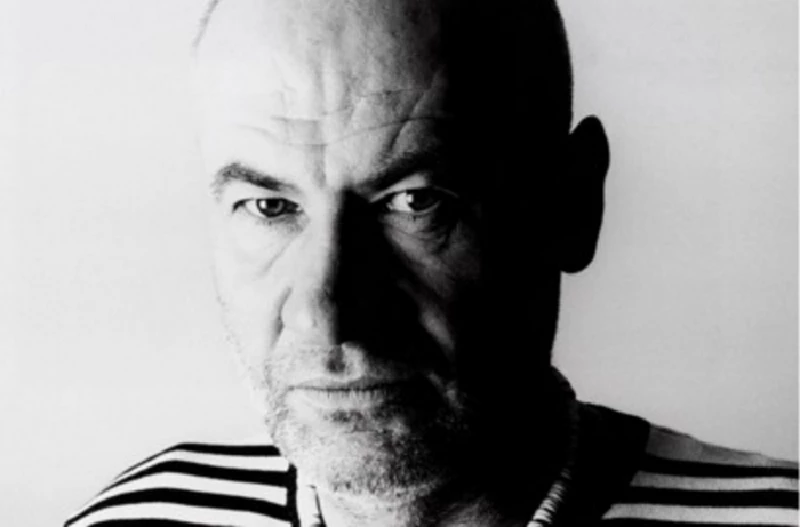
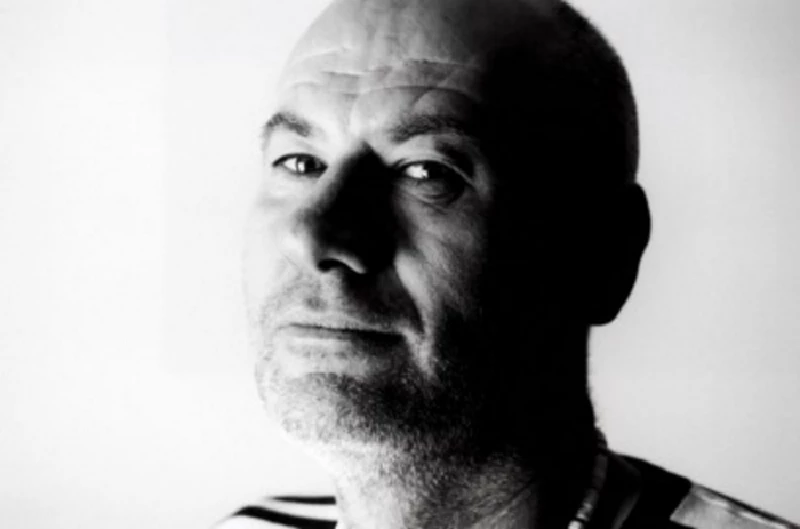
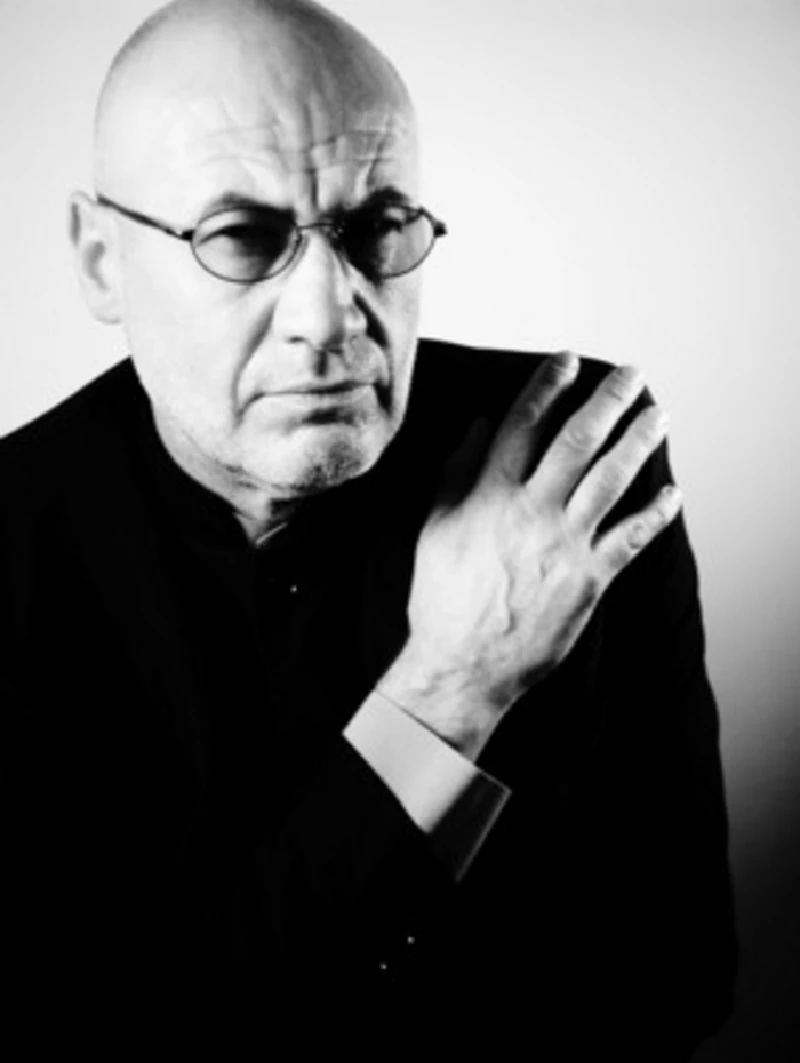
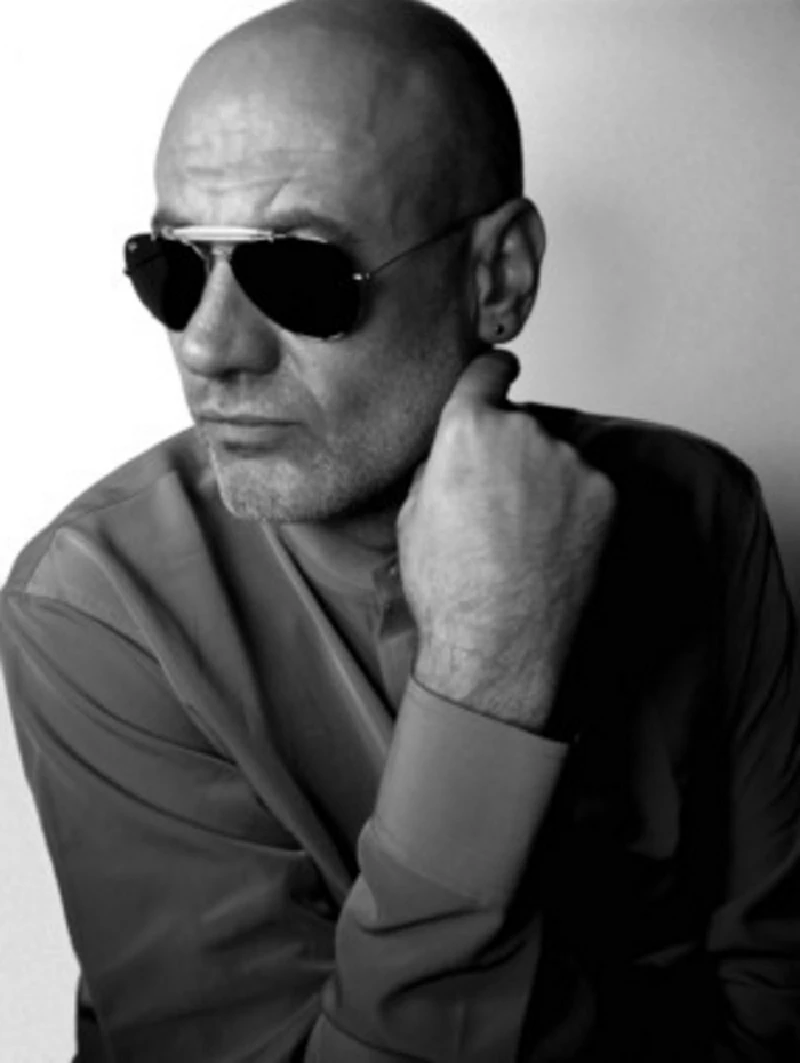
interviews |
|
Interview (2015) |
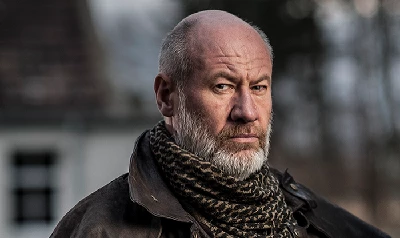
|
| Ex-Marillion front man Fish talks to John Clarkson about his recent announcement that he will retire from music to concentrate instead on a new career as a writer, and his plans for a final album and to reissue most of his solo catalogue in three CD remastered editions |
| Interview (2013) |
photography |
|
Photoscapes (2018) |
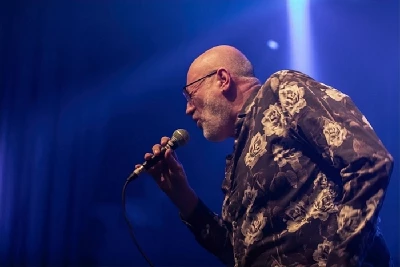
|
| Andrew Twambley photographs former Marillion front man Fish at a show at The Ritz in Manchester. |
most viewed articles
current edition
Carl Ewens - David Bowie 1964 to 1982 On Track: Every Album, Every SongArmory Show - Interview with Richard Jobson
Colin Blunstone - Thalia Hall, Chicago, 16/7/2025
Bathers - Photoscapes 1
Visor Fest - Valencia, Spain, 26/9/2025...27/9/2025
John McKay - Interview
Editorial - July 2025
Robert Forster - Interview
Billie Eilish - O2 Arena, London, 10/7/2025
Sir Tim Rice - Interview
previous editions
Heavenly - P.U.N.K. Girl EPManic Street Preachers - (Gig of a Lifetime) Millennium Stadium, Cardiff, December 1999
Oasis - Oasis, Earl's Court, London, 1995
Beautiful South - Ten Songs That Made Me Love...
Trudie Myerscough-Harris - Interview
Pixies - Ten Songs That Made Me Love...
Simon Heavisides - Destiny Stopped Screaming: The Life and Times of Adrian Borland
Paul Clerehugh - Interview
Doris Brendel - Interview
Prolapse - Interview
most viewed reviews
current edition
Amy Macdonald - Is This What You've Been Waiting For?Sick Man of Europe - The Sick Man of Europe
Phew, Erika Kobayashi,, Dieter Moebius - Radium Girls
Alice Cooper - The Revenge of Alice Cooper
Davey Woodward - Mumbo in the Jumbo
Lucy Spraggan - Other Sides of the Moon
Blueboy - 2
Cynthia Erivo - I Forgive You
Lapsley - I'm a Hurricane, I'm a Woman In Love
Philip Jeays - Victoria
related articles |
|
Billy Bibby and the Wry Smiles: Interview (2016 |
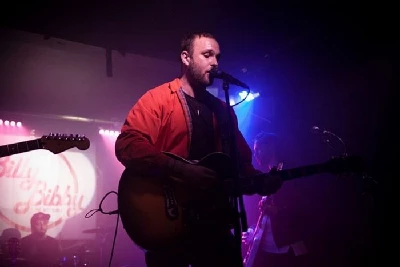
|
| Harry Sheriff chats to Billy Bibby and Matt Thomas of Billy Bibby and the Wry Smiles about touring and what direction the band wants to take |
| Filthy Tongues: Interview (2016) |
| Billy Bibby and the Wry Smiles: Interview (2016) |
Pennyblackmusic Regular Contributors
Adrian Janes
Amanda J. Window
Andrew Twambley
Anthony Dhanendran
Benjamin Howarth
Cila Warncke
Daniel Cressey
Darren Aston
Dastardly
Dave Goodwin
Denzil Watson
Dominic B. Simpson
Eoghan Lyng
Fiona Hutchings
Harry Sherriff
Helen Tipping
Jamie Rowland
John Clarkson
Julie Cruickshank
Kimberly Bright
Lisa Torem
Maarten Schiethart